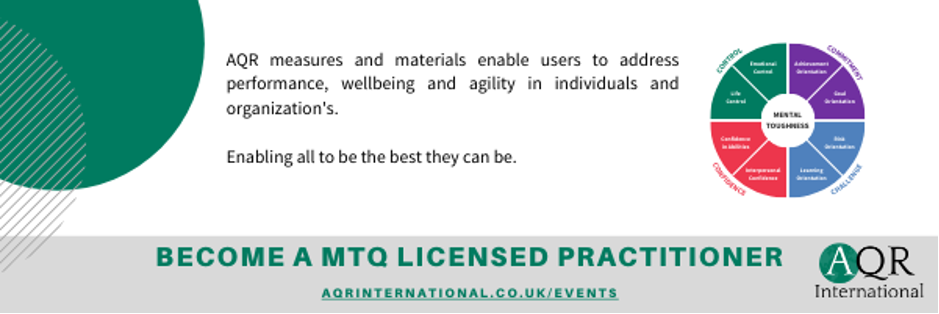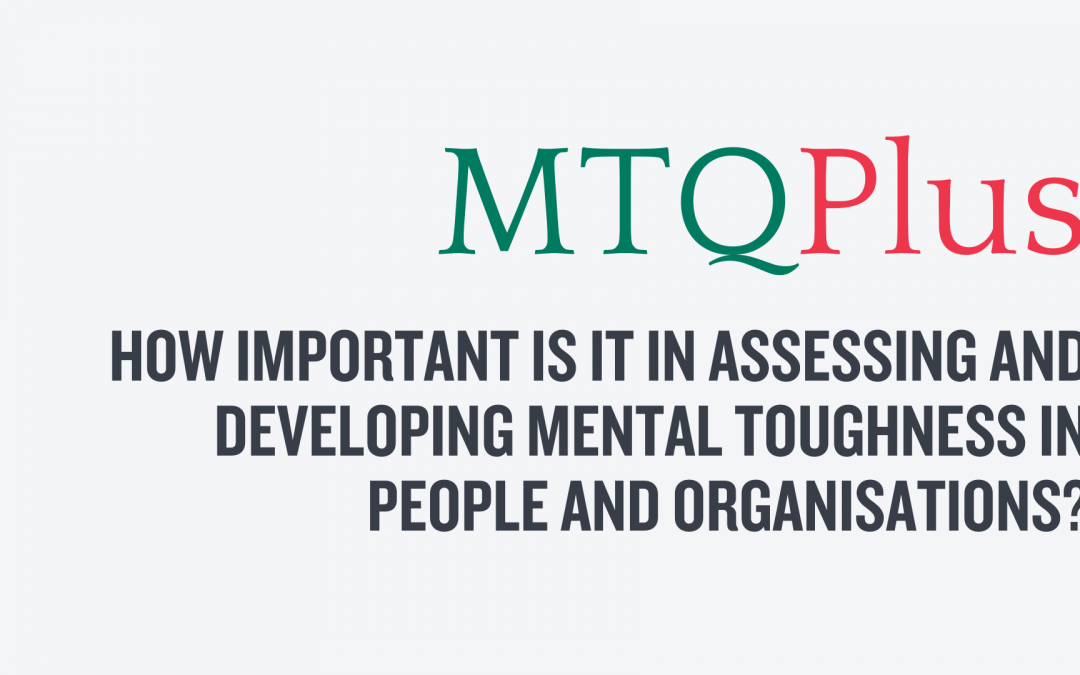How important is it in assessing and developing mental toughness in people and organisations?
“Making the invisible, visible” *
The short answer to this question is “It is very important and its more important than most people realise”.
Mental Toughness is a personality trait which describes our mental responses to whatever happens to us and around us. It assesses “how we think”. Important in its own right, it is also a significant influence on “how we act” and “how we feel” when things happen to us and around us.
What is the challenge?
When we talk about self-awareness leading to understanding and developing ourselves and others, it is the “how we think” element that we mostly need to grasp and change if we can.
This lies at the heart of people development and is central to coaching. After all, coaching is all about helping others to know themselves and find their own solutions for their challenges.
So, what does mental toughness “bring to the party”? The 4Cs concept in its 8 factor brings a framework through which we can understand “how we think”. Especially that this has 8 components and we can see how these combine in different ways in all of us produce the myriad differences in response that people make. We are all subtly different to each other.
Those nuances are important. Understanding that and doing something about it, is the holy grail of people development.
| MT Scale | What this means … what does MTQ assess … the 8 Factors |
| CONTROL | Life Control – Self-worth – I believe I control enough of my life to achieve what I need |
| Emotional Control – I can manage emotions and not allow them to influence what I do | |
| COMMITMENT | Goal Orientation – I have a sense of purpose and like to set goals for this |
| Achievement Orientation – I am minded to do what it takes to achieve my goals | |
| CHALLENGE | Risk Orientation – I welcome experiences – I see opportunity more than I see threats |
| Learning Orientation – I reflect and learn from all that happens – including setbacks | |
| CONFIDENCE | In Abilities – I believe in my abilities to deal with life – and will use my abilities |
| Interpersonal Confidence – I think I can comfortably engage with and influence others |
There are over 40,000 different ways that these factors can combine. So, you could have a roomful of people who all have the same level of overall mental toughness but everyone will have a different profile underpinning it.
Unlike behaviour, which we can generally observe, and emotions, which we can also indirectly observe and describe with confidence, our mental processes are invisible – to others and, often, to us.
So, the mental toughness concept brings a degree of understanding to “the way we think” and the nuances which can arise from this.
And, in fact, it’s a little more complex than this. We can have different degrees/levels of mental toughness on each of the 8 factors.
Taking this into account there are over a million possible combinations of factors and levels!
We are, in reality, much more individual than we realise most of the time.
(Think about this when someone introduces you to a personality typing instrument that allocates your personality onto 2, 4 or 16 types!! Whilst simplicity has its attractions, it can significantly limit your understanding of, and your ability to develop, a client.
We often talk about moving away from “one size fits all” approaches and working with people as individuals. That means understanding people as individuals. This is exactly why coaching and mentoring have the potential to be so effective.
What does the MTQPlus psychometric add to this?
Like any psychometric measure, it helps users to better understand what the measure is designed to assess. Not necessarily a perfect picture (that is still an impossible ask for psychometricians) but a much clearer picture than we can achieve without it.
This is especially important when we are dealing with something that is “invisible”.
The developers of the MTQ measures, mindful of this, have given great attention to its development. It is a high-quality measure. It is reliable and valid in a way that makes it one of the best tests in the world.
We also know that all of the scales are statistically independent of each other. That is, each scale is measuring something significantly different, yet connected within a common concept.
So, it enables users to grasp some of that complexity that arises because we each have different levels of each factor.
And that is important. How else can you do that with confidence?
It is important because we can look at a behaviour and find that the reason for doing it, or not doing it, is underpinned by a unique combination of reasons. It may look the same from the outside – but is produced by a complex set of internal processes.
If we are to help the individual respond differently or better, then we need to understand what is happening in that person’s head.
What are the challenges?
In our work, we see many people trained to understand the concept – which we always couple with understanding how to use the MTQ measures. They go off and begin to practice but don’t use the measure.
What they are trying to do is assess an individual mindset – and all its complexity – through their understanding of the concept and their interview skills – without checking how reliable and valid their data sources are.
It is like asking an archaeologist to dig a site using a shovel when they could use a set of specialised trowels and brushes. The tools help you to do a better job.
Moreover, the discussion about psychometrics often focuses on the measure itself. It is important, but it is a tool. It is the output that is important. Are you professionally making the best assessment of another person to enable them to optimise who they are? Especially when what you are seeking to assess is so difficult to observe.
There is another dimension to this. Working with people is a learning process for the coach, trainer or manager.
The most effective practitioners we know, report that they constantly learn each time they apply the framework and use the measure because it gives them visible data on which they can reflect and learn.
Whereas this is true about psychometrics in general, it is particularly so with the mental toughness questionnaires. With behavioural measures we can generally correlate output with what we can see or describe. It’s another thing when we are dealing with something that is so hard to see.

For more information about Mental Toughness see www.aqrinternational.co.uk.
To learn how to be a licensed user of the mental toughness concept and the MTQPlus measure, contact headoffice@aqr.co.uk
*Quote attributed to Rain Hitchman, a licensed user of the concept and the measure


